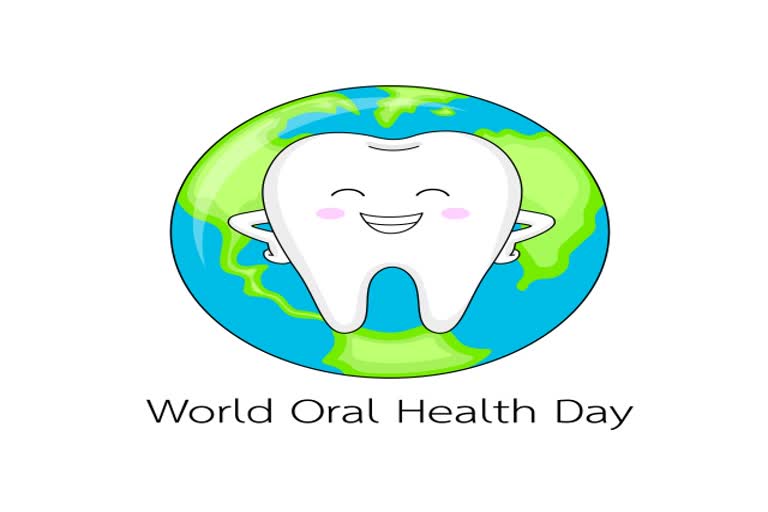The World Health Organization (WHO) states that Oral diseases pose a major health burden for many countries and affect people throughout their lifetime, causing pain, discomfort, disfigurement, and even death. It is estimated that oral diseases affect nearly 3.5 billion people. More than 530 million children suffer from dental caries of primary teeth. Therefore, today on WOHD, let us know more about oral health and how it can be maintained.
Oral Health
Oral health is just as important as our general health. WHO defines oral health as “a state of being free from chronic mouth and facial pain, oral and throat cancer, oral infection and sores, periodontal (gum) disease, tooth decay, tooth loss, and other diseases and disorders that limit an individual’s capacity in biting, chewing, smiling, speaking, and psychosocial well-being.”
Effects Of Oral Health On General Health
According to the Indian Dental Association (IDA), there are certain major effects of Oral Health on General Health, which are as follows:
- Heart disease
Individuals with gum disease are twice at risk of a fatal heart attack. Similarly, individuals with pre-existing cardiac diseases need to be more cautious about oral hygiene. - Stroke
A study has inked oral infections with an increased chance of a stroke. - Diabetes
Oral infections make diabetics more susceptible to increasing blood sugar. Individuals with diabetes are more prone to gum disease. - Respiratory problems
Individuals with oral infections can be affected by critical respiratory diseases such as pneumonia. - Pregnancy
One of the factors causing premature birth or small-sized babies is the presence of gum disease in pregnant women. The biological fluids that induce labour are activated by the bacteria from gum disease.
Also Read: 10 Amazing Home Remedies To Eliminate Bad Breath
Some Oral Health Problems
- Toothache
- Cavities
- Stained/yellow teeth
- Sensitivity
- Cracked or broken teeth
- Tooth decay
- Gingivitis (gum disease)
- Oral cancer
- Mouth sores
- Tooth erosion
- Bad breath, etc.
What Can Be Done?
After knowing what all troubles can be caused if oral health is not maintained properly, here is what IDA recommends separately for people of all age groups:
Infants & Toddlers
- Take your infant to the dentist by age 1or after the first tooth erupts.
- Clean your infant's gums, using gauze or a soft cotton cloth.
- Brush baby teeth with a small soft-bristled toothbrush and a pea-sized amount of toothpaste after feedings and at bedtime.
- Floss baby teeth. When two baby teeth erupt side by side, gently floss them at least once a day (preferably before bedtime).
- Wean your baby from the bottle. Ask your pediatrician or dentist when you should stop breastfeeding. If your baby is bottle-fed, wean your child from the bottle by the age of 1.
Kids
- Schedule regular dental exams and cleanings, preferably once every six months.
- Teach your kids how to brush and floss.
- Look into dental sealants. Ask your dentist whether your child should get dental sealants for added protection against tooth decay.
- Monitor fluoride use. Check to see if your community water supply is fluoridated. If not, ask your dentist about professional fluoride treatments for your child. Keep in mind that too much fluoride can cause dental fluorosis.
- Ask your dentist about mouthwash. Prepare healthy meals and smart snacks, instead of cookies, potato chips and ice cream.
- Schedule an orthodontic evaluation. Many orthodontists recommend that children receive a complete orthodontic evaluation by the age of 7.
Teens - Get a dental exam and cleaning every six months.
- Keep brushing and flossing every single day.
- Drink plenty of fluoridated water, Instead of reaching for soda or energy drinks.
- Maintain a well-balanced diet.
- Ask your dentist about mouthguards. If you play sports, it's important to protect your teeth during high and low- impact activity.
Adults - Visit your dentist regularly
- Brush and floss daily, even if you're tired.
- Limit fast food and eat well-balanced meals.
- Exercise regularly; it's good for your teeth! Studies show that people who maintain a healthy lifestyle -- exercise and eating right -- are 40 percent less likely to develop periodontitis (advanced gum disease).
Seniors - Visit your dentist regularly.
- Get professional denture care. Over time, your dentures may start to loosen and shift while you talk or eat. You don't have to endure this discomfort, but you should seek your dentist's help rather than try to use an over-the-counter denture repair kit, which can damage your dentures.
- Switch to an electric toothbrush if necessary.
- Consider dental implants to replace missing teeth.
Therefore, brushing your teeth is very important, along with cleaning in between the gums. Ensure regular visits to your dentist and maintain a healthy diet and lifestyle. If you wish for whiter and healthier teeth as well as pink and strong gums, restrain yourself from consuming sugary foods, smoking, and consider switching to healthy snacking.



